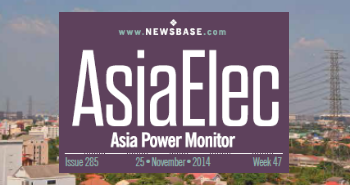Mongolia’s FRC approves regulation to boost green bond finance
Mongolia’s Financial Regulatory Commission (FRC) board has approved a regulation drawn up to tackle environmental challenges in the country by helping to grow green finance.
The FRC has signed a memorandum of understanding with the International Finance Corporation (IFC), a sister organisation of the World Bank. The IFC assisted the FRC in drafting the regulation on the issuance and registration of green bonds in line with the internationally recognised Green Bond Principles.
The FRC has approved the regulation as part of the newly enacted Company Debt Instrument Registration Regulation.
As yet, no green bond has been issued in Mongolia. However, there is interest in issuing green bonds in the country, with the FRC referring to estimates that Mongolia may have around $1bn in green investment demand annually.
“The government of Mongolia has introduced several policies and commitments to build a low carbon, climate-resilient future for the country. This latest move will help open up a market for green finance,” said Bayarsaikhan Dembereldash, chairman of the FRC.
At a Climate Ambition Summit held last December, Mongolia committed to a higher Nationally Determined Contribution (NDC) target for a 27.2% reduction in greenhouse gases by 2030. According to an IFC study, $11.5bn in climate investments will be required to achieve this new target.
“Mongolia’s geographic and climatic conditions offer unique financing opportunities for projects that support renewable energy, energy efficiency, green buildings, climate-smart agriculture, and clean urban services,” said Qamar Saleem, IFC’s regional manager, advisory services for financial institutions group in Asia and Pacific. “We’ve already seen interest from financial institutions and other organizations to invest in green bonds to tap into the climate and green finance opportunities in the country, which can help deliver a cleaner, more energy efficient and sustainable environment for the people of Mongolia.”
Mongolia’s harsh climate and heavy reliance on coal, combined with low energy efficiency, contributes to the country’s high annual per capita greenhouse gas emissions, relative to other countries with similar levels of economic output and income. Financing from green bonds could help spur renewable energy projects as well as investments in energy efficiency.



Follow us online